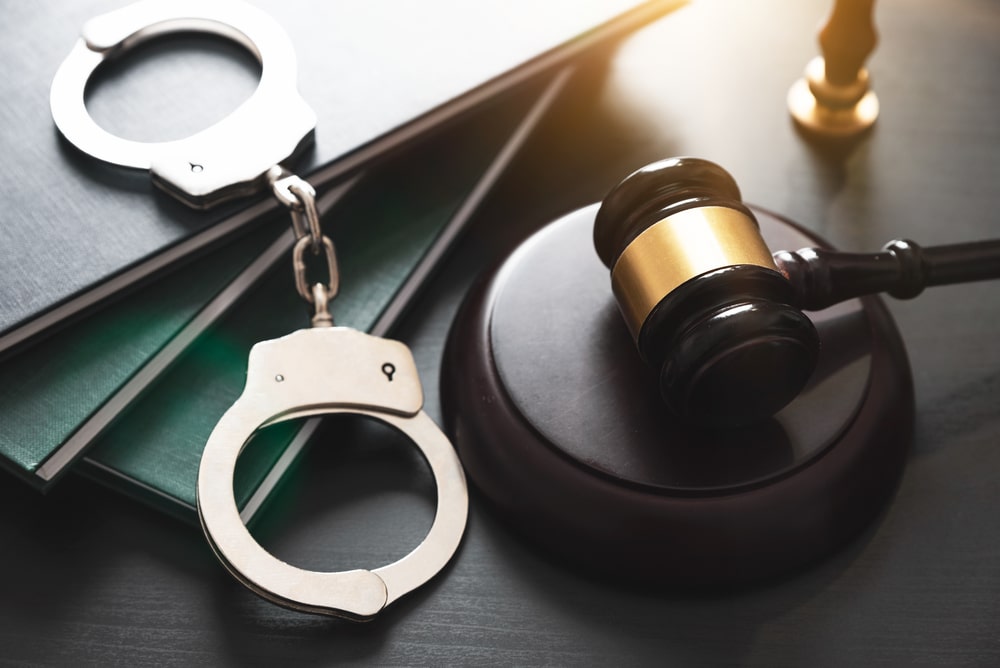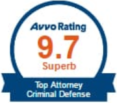Table of Contents
- Consequences of a Criminal Conviction in Georgia
- What are the potential penalties for a criminal conviction in Georgia?
- Will a criminal conviction affect my employment prospects?
- Can I still vote or possess firearms after a criminal conviction?
- Will a criminal conviction affect child custody or visitation rights?
- How long does a criminal conviction stay on my record in Georgia?
- Are there any options for expungement or record sealing in Georgia?
Consequences of a Criminal Conviction in Georgia

As an experienced criminal lawyer and assistant district attorney in Georgia, Michael Fulcher understands the significant consequences of a criminal conviction. With a background as a former assistant district attorney and public defender, he offers expert insight into the legal landscape.
Explore the potential ramifications, including penalties, employment prospects, voting rights, and child custody issues. Gain valuable knowledge from a trusted criminal attorney like Michael Fulcher to assist in navigating the complexities of a criminal conviction in Georgia.
Table of Contents
- What are the potential penalties for a criminal conviction in Georgia?
- Will a criminal conviction affect my employment prospects?
- Can I still vote or possess firearms after a criminal conviction?
- Will a criminal conviction affect child custody or visitation rights?
- How long does a criminal conviction stay on my record in Georgia?
- Are there any options for expungement or record sealing in Georgia?
What are the potential penalties for a criminal conviction in Georgia?
In Georgia, the potential penalties for a criminal conviction vary depending on the nature and severity of the offense. It is important to seek advice from a Michael Fulcher to fully understand the specific penalties that may apply in your case. Here we outline a general overview of the penalties under Georgia law.
Misdemeanors
Misdemeanors are less serious offenses and are categorized as either “misdemeanor of a high and aggravated nature” or “misdemeanor of a less aggravated nature.” The potential penalties for misdemeanors include:
Misdemeanor of a high and aggravated nature
A maximum fine of $5,000 and/or up to 12 months in jail.
Misdemeanor of a less aggravated nature
A maximum fine of $1,000 and/or up to 12 months in jail.
Felonies
Felonies are more serious offenses and are classified into several categories based on their severity. The potential penalties for felonies include:
- Felony 1st Degree: Capital punishment, life imprisonment without parole, or imprisonment for a term between 10 and 30 years.
- Felony 2nd Degree: Imprisonment for a term between 5 and 20 years.
- Felony 3rd Degree: Imprisonment for a term between 1 and 5 years.
- Felony 4th Degree: Imprisonment for a term between 1 and 3 years.
- Felony 5th Degree: Imprisonment for a term between 1 and 2 years.
Fines
In addition to imprisonment, criminal convictions in Georgia may also result in fines. The amount of the fine varies depending on the offense and can range from a few hundred dollars to thousands of dollars.
It is important to note that these penalties are general guidelines and can be subject to specific circumstances and legal considerations. Aggravating factors, such as the use of a weapon, prior convictions, or the presence of certain enhancements, can result in increased penalties.
To obtain detailed information regarding potential penalties for a specific offense, it is essential to consult the Georgia Code, specifically Title 16 (Crimes and Offenses), and seek the guidance of Michael Fulcher who can provide tailored advice based on the particular facts and circumstances of your specific case.
Will a criminal conviction affect my employment prospects?
Potential Impact of Criminal Conviction on Employment Prospects in Georgia:
- Private Employers: Private employers in Georgia have discretion but must comply with anti-discrimination laws like Title VII. Factors considered include offense relevance, time elapsed, and rehabilitation evidence.
- Public Employers: Government entities may have stricter regulations, especially for positions involving public safety or vulnerable populations. The Georgia Office of Bar Admissions imposes character requirements for the State Bar.
- Professional Licensing: Licensed professions (e.g., nursing, teaching) may have guidelines regarding criminal convictions. Consult specific licensing boards and relevant statutes for potential consequences.
- Expungement and Record Restriction: Georgia offers avenues for expungement or record restriction. Expunged/restricted records generally don’t need to be disclosed to private employers, except in limited circumstances.
For a comprehensive understanding, consult the Georgia Code, relevant administrative regulations, and seek guidance from Michael Fulcher who is familiar with any criminal aspects related to your case.
Can I still vote or possess firearms after a criminal conviction?
Voting and Firearm Possession Rights After a Criminal Conviction in Georgia:
Voting Rights: In Georgia, felons lose their voting rights during their sentence but have them automatically restored upon completion. No additional waiting period or application is required. Ensure all fines, fees, and restitution associated with the conviction are satisfied for full voting rights restoration.
Firearm Possession: Certain convictions may restrict firearm possession under federal and state law:
- Felony Convictions: Federal law prohibits felons from possessing firearms, but Georgia provides a process for restoration through a pardon from the State Board of Pardons and Paroles.
- Domestic Violence Offenses: The Lautenberg Amendment and Georgia law impose firearm possession restrictions for misdemeanor domestic violence convictions.
- Specific Offenses: Other crimes like drug trafficking, violent offenses, and crimes during a protective order may also have firearm restrictions.
Consult the Georgia Code, Title 16, and federal laws such as the Gun Control Act of 1968 and the Lautenberg Amendment for precise details on the impact of a criminal conviction on firearm possession rights in Georgia.
Will a criminal conviction affect child custody or visitation rights?
In Georgia, a criminal conviction can potentially affect child custody or visitation rights. The impact will depend on the specific circumstances of the case, the nature of the offense, and the best interests of the child.
Best Interests of the Child
When determining child custody and visitation, Georgia courts prioritize the best interests of the child. The court considers various factors, including the child’s physical and emotional well-being, each parent’s ability to provide a stable environment, the child’s relationship with each parent, and any history of domestic violence or substance abuse.
Criminal Convictions and Child Custody
A criminal conviction, especially for offenses related to child abuse, domestic violence, or crimes involving moral turpitude, can significantly impact child custody decisions. Georgia courts may view such convictions as evidence of a parent’s inability to provide a safe and stable environment for the child.
Visitation and Supervised Access
In cases where a parent has a criminal conviction or a history of substance abuse, the court may order supervised visitation or restricted access to ensure the child’s safety and well-being. Supervised visitation allows the parent to spend time with the child under the supervision of a designated third party.
Rehabilitation and Mitigating Factors
While a criminal conviction can affect child custody and visitation, courts may also consider factors such as the parent’s efforts towards rehabilitation, completion of counseling or treatment programs, and evidence of positive changes. Demonstrating rehabilitation and a commitment to the child’s best interests may help mitigate the impact of the conviction.
If you’re facing a criminal conviction in Georgia and are concerned about its impact on child custody and visitation, understanding the consequences is crucial. Referencing the Georgia Code, particularly Title 19 (Domestic Relations), and relevant case law will provide valuable insights into the factors and considerations that Georgia courts apply in such cases. To gain comprehensive information tailored to your situation, it is advisable to reach out to Michael Fulcher. As an experienced criminal attorney and former assistant district attorney, he can offer expert guidance by discussing the specifics of your case and presenting you with the available options.
How long does a criminal conviction stay on my record in Georgia?
In Georgia, the length of time a criminal conviction stays on your record depends on the type of offense and the specific legal procedures available for record restriction or expungement. It is important to seek advice from an experienced criminal attorney for accurate and up-to-date information regarding your specific situation.
Misdemeanor Convictions
Misdemeanor convictions generally remain on your criminal record permanently in Georgia unless the record is restricted or expunged. However, certain qualifying misdemeanors may be eligible for record restriction or expungement after a specified period.
Felony Convictions
Felony convictions also remain on your record permanently in Georgia, unless they are restricted or expunged. However, some felony convictions may be eligible for record restriction or expungement under certain circumstances.
Record Restriction
In Georgia, record restriction (formerly known as record sealing) allows certain individuals to limit access to their criminal records. The Georgia law governing record restriction is found in O.C.G.A. § 35-3-37. Record restriction allows individuals who meet the eligibility criteria to have their records made unavailable to the public. However, certain authorized entities, such as law enforcement agencies and certain employers, may still have access to the restricted records.
Expungement
Expungement in Georgia involves the complete removal and destruction of a criminal record. However, it is important to note that expungement is generally not available for adult convictions unless the conviction was overturned on appeal, deemed unconstitutional, or resulted from mistaken identity.
The eligibility and requirements for record restriction or expungement can vary depending on factors such as the offense committed, the outcome of the case, and the individual’s criminal history. It is important to consult the Georgia Code, specifically Title 35 (Law Enforcement Officers and Agencies), and relevant administrative regulations to understand the specific eligibility criteria and procedures for record restriction or expungement.
Are there any options for expungement or record sealing in Georgia?
Yes, there are options for record restriction (formerly known as record sealing) and expungement in Georgia. These processes allow individuals to limit access to or completely remove certain criminal records from public view. However, it’s important to note that expungement is generally limited to specific circumstances and not available for all types of convictions.
Record Restriction
In Georgia, record restriction allows individuals to make their criminal records unavailable to the public while still allowing access to authorized entities, such as law enforcement and certain employers. The legal provisions governing record restriction can be found in O.C.G.A. § 35-3-37. Record restriction is available for certain misdemeanor and felony convictions, subject to eligibility criteria and requirements.
Expungement
Expungement involves the complete removal and destruction of a criminal record, essentially erasing it as if it never existed. However, expungement in Georgia is generally limited to specific circumstances. Expungement may be available if the conviction was overturned on appeal, deemed unconstitutional, or resulted from mistaken identity. The applicable legal provisions for expungement can be found in various sections of the Georgia Code, such as O.C.G.A. § 35-3-37.1.
Eligibility and Procedures
The eligibility criteria and procedures for record restriction and expungement vary depending on the offense, the outcome of the case, and the individual’s criminal history. It is important to consult the specific statutes and relevant administrative regulations to understand the requirements in detail.
Legal Assistance
Navigating the process of record restriction or expungement in Georgia can be complex, requiring the guidance of an experienced attorney specializing in criminal law. With their assistance, you can assess your eligibility, understand the necessary steps, and protect your rights throughout the process.
Remember, not all types of convictions in Georgia are eligible for record restriction or expungement. Each case is unique, necessitating a thorough understanding of the legal landscape. Consultation with legal resources, such as the Georgia Code’s Title 35 (Law Enforcement Officers and Agencies) and relevant administrative regulations, is crucial.
For personalized advice tailored to your specific circumstances, seek guidance from Michael Fulcher, a criminal defense lawyer and former assistant district attorney. His expertise can provide valuable insights into your eligibility, help you navigate the necessary procedures, and ensure you receive comprehensive support throughout the process.
By leveraging the expertise of an experienced attorney like Michael Fulcher and familiarizing yourself with relevant legal resources, you can effectively navigate the record restriction or expungement process in Georgia, protecting your rights and pursuing the best possible outcome. Contact Michael Fulcher Law, LLC for a free consultation.




